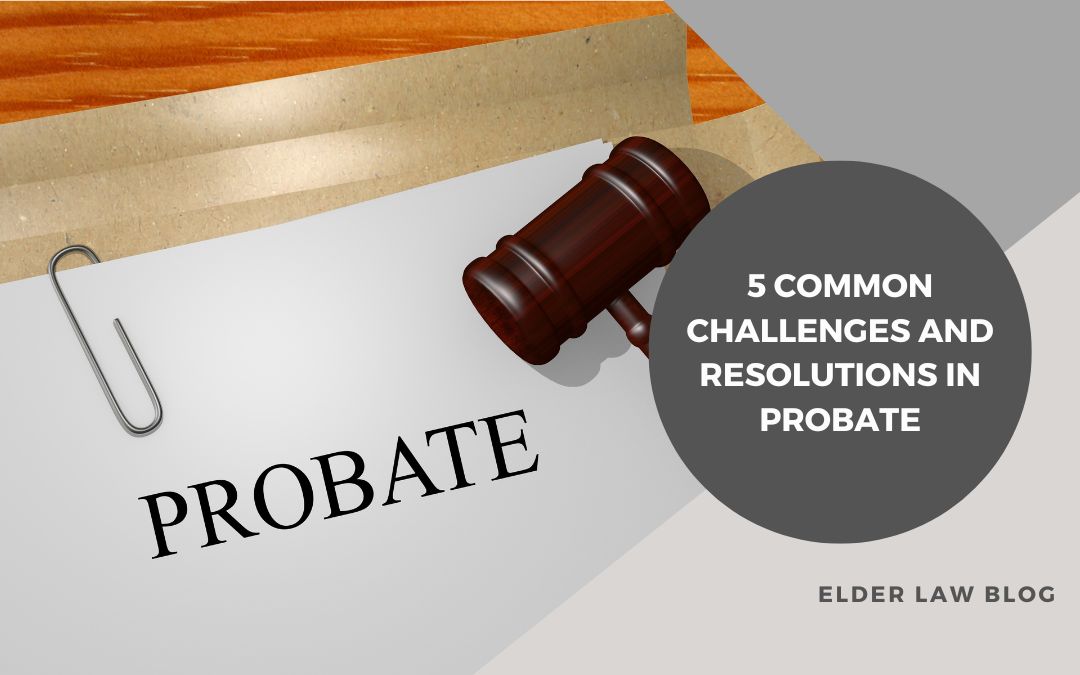Probate is a legal process involving the administration of a deceased individual’s estate and assets with or without a will. The specific laws concerning probate vary by state, including when it’s required.
Here are 5 common challenges that can arise during probate.
1. A personal representative who declines the role
Sometimes a person named as the personal representative for an estate will decline. If there isn’t an alternative person named, this can cause significant expenses and delays. Because now the court must get involved to appoint a new representative or an estate administrator.
To avoid this problem, talk with the person you want to act as your personal representative. Make sure they understand the tasks involved and are willing to serve. Additionally, name an alternative person in case something unforeseen prevents the original person from serving.
2. Ambiguities or mistakes in the will or trust
If the language of the will or trust isn’t clear or beneficiaries aren’t properly named, it can lead to mistakes. These issues can cause conflicts among the living relatives, resulting in the estate being tied up for years in costly litigation. It also can lead to your wishes not being carried out as you wanted. This problem can arise when people draft their own estate planning documents.
To avoid this problem, consider having an attorney help you create your will or trust and assist you with estate planning. Or, if you’ve already drafted your documents, ask an attorney to review them.
3. Challenges to your will’s validity
Sometimes, a family member will believe a will isn’t valid. They may feel like the individual was being influenced or not of sound mind. Additionally, if there are multiple wills, they may claim a different one should be enforced. Challenges lead to delays and extra expenses.
To reduce the risk of a challenge, talk to your heirs about your wishes. Let everyone know the details of your will or trust and how you want your property and assets handled. Additionally, make sure you have only one active will. Having an attorney assist with your estate planning can also help provide support that you were of sound mind when making the will.
4. When an executor is not fulfilling their fiduciary duty
Your personal representative, or executor, has an obligation under the law to manage the assets fairly and appropriately to benefit the estate and beneficiaries. If the executor fails in their duties, steals assets, or mismanages their obligation, victims can make a damage claim. For instance, an executor that illegally sells a property can have legal action taken against them to undo the sale.
The damage claims, while necessary, cause additional delays and expenses. Additionally, sometimes mismanaged assets can’t be fully reclaimed.
To reduce the risk of this issue, be thoughtful about who you name as the executor of your will. Make sure they understand what’s involved, their responsibilities, and that this is an active role that will require work.
5. Assets are not equally distributed among heirs
Inheritance disputes may arise if one heir feels they have been unfairly treated as compared to the other heirs. If a parent leaves one child more than another with no explanation, it can lead to anger and discord, which may cause an heir to dispute the will.
To avoid this issue, consider clearly stating in the will or estate plan why you’re leaving more assets to one heir to avoid confusion and disputes.

